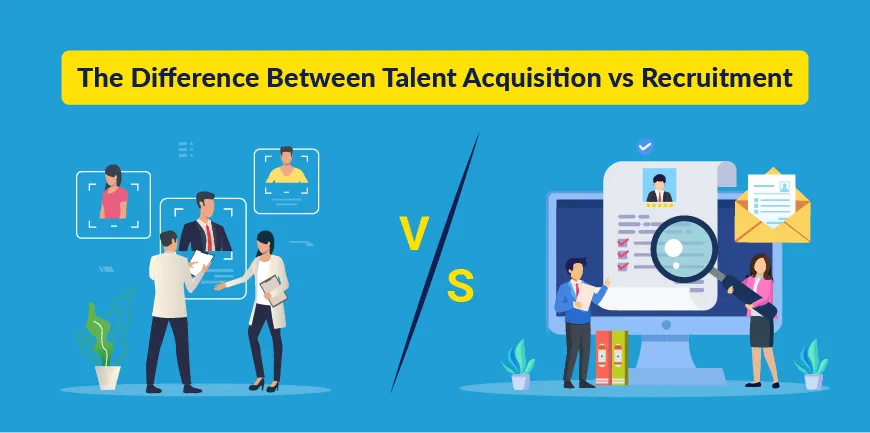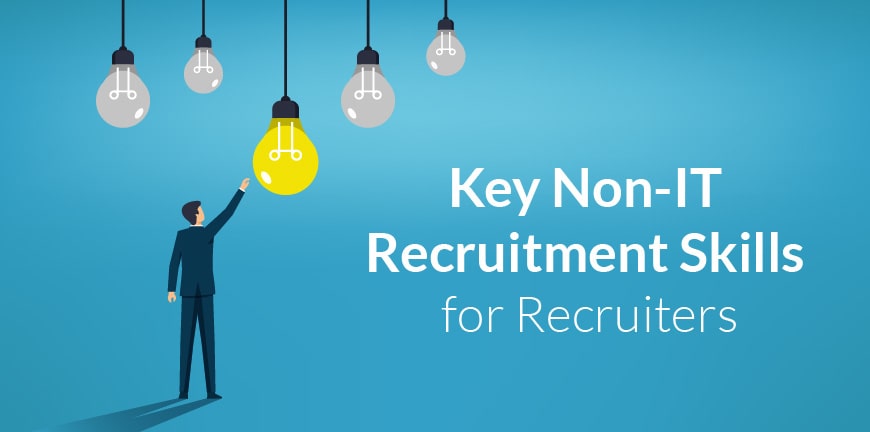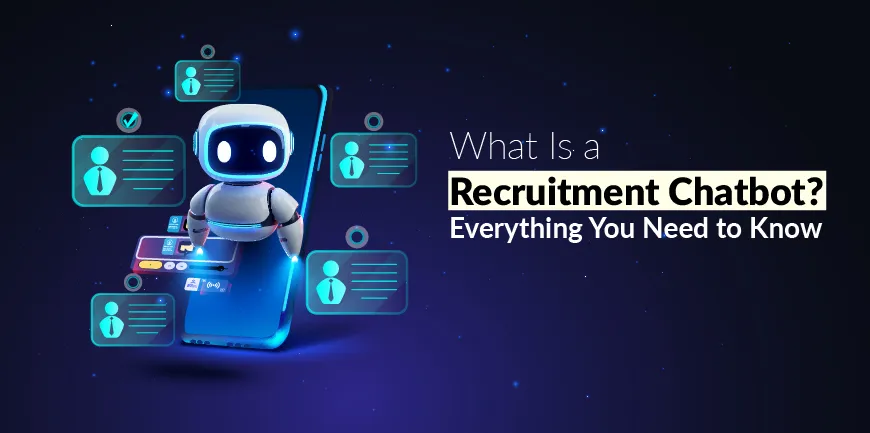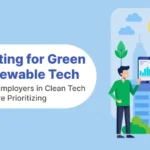
Recruiting for Green and Renewable Tech: What Skills Employers in Clean Tech Are Prioritizing
27/10/2025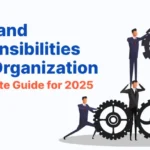
Roles and Responsibilities in an Orgazisation: A Complete Guide for 2025
27/10/2025- What is Recruitment?
- What is Talent Acquisition in HR?
- What Are the Key Differences Between Talent Acquisition and Recruitment?
- How Do Talent Acquisition and Recruitment Work Together?
- What Makes an Effective Talent Acquisition Strategy?
- What Are the Challenges in Talent Acquisition and Recruitment?
- Tips for Improving Talent Acquisition and Recruitment
- What Are the Latest Trends in Talent Acquisition and Recruitment?
- Conclusion
- FAQs- Frequently Asked Questions
If you want to build a strong workforce, then you must consider talent acquisition vs recruitment as both are essential for an organisation’s growth. However, you must figure out which is better. A good team is always the reason for your business’s success and development, as they bring the right skills you need to achieve your organisational goals. While the goal of talent acquisition and recruitment is to fill open positions, there are several key differences between the two. Recruitment is carried out when there is a particular need for a candidate. In contrast, talent acquisition is ongoing even when there is no immediate need to fill a position, but rather to create a talent pipeline.
What is Recruitment?
Recruitment is the process of finding, identifying, attracting, interviewing, selecting and hiring suitable candidates for open positions in an organisation. It is a process that involves everything that is required to find and hire a candidate for a vacant job position. Recruitment is either outsourced to an expert third-party provider or carried out by an in-house team or a single recruiter, depending on the company’s size and needs. To source the right candidates, companies post their candidate requirements through advertisements, social media and other networks.
What is Talent Acquisition in HR?
Talent Acquisition is the process of sourcing, interviewing, selecting and onboarding qualified and skilled candidates who will be instrumental for the growth of your business. This could be managers, executives or others with unique skill sets. This process is crucial in deciding an organisation’s success because the people you attract and hire through this process decide the company’s productivity trajectory. Talent acquisition decides the kind of candidates who join your organisation, how people identify with your brand, resource planning and the inclusion of a diverse workforce. Doing this correctly can lead to improved candidate retention and increased productivity.
What Are the Key Differences Between Talent Acquisition and Recruitment?
Talent acquisition and recruitment differences are essential to understanding the workforce needs of an organisation.
| Aspect | Recruitment | Talent Acquisition |
| Approach | Hiring takes place only when a position needs to be filled immediately | Skilled candidates are hired regardless of the presence of open positions. |
| Goal | To fill in the crucial positions that are vacant at present | To hire skilled candidates who can add to the long-term goals of an organisation |
| Scope | Specific roles, often entry-level or volume hiring | Strategic positions, specialised skills, and leadership roles |
| Duration of the process | The process comes to an end upon the successful hiring of a candidate | A continuous process where skilled individuals are hired to create a solid talent pipeline. |
| Focus | Job posting, sourcing, screening, and selection | Future workforce planning involves figuring out the talent required for critical roles in the future. |
| Tools and Metrics | Time taken to hire, hiring cost, and the number of candidates hired successfully. | How good the hired candidates are, is there a solid talent pipeline in the making, and are your employees engaged enough |
| Nature | Operational, transactional, and execution-driven | Strategic, future-oriented, and brand-driven |
How Do Talent Acquisition and Recruitment Work Together?
For the two to work together, organisations must figure out their workforce needs. Most organisations have separate teams working on these processes.
The HR, hiring managers of departments and stakeholders must hold meetings regularly to have an idea as to how they are doing with short-term goals as well as long-term goal completion. What are the roles you are looking to hire for? Do you require supremely skilled candidates to be part of your organisation, regardless of whether or not there is an open position? How quickly do you require a specific candidate? These are the questions you must have the answers to, to ensure both talent acquisition and recruitment work together and fulfil business needs as well as team needs.
What Makes an Effective Talent Acquisition Strategy?
1. Building a strong employer brand
To find the best candidates out there, you must portray the best qualities about your brand, its vision, values, etc, through channels that have the potential to attract the right candidates. This can happen through job descriptions that don’t just tell about the role, but also about the company culture.
2. Provide a satisfactory candidate experience
Potential candidates must be able to easily reach out to you. Make your application process simple. Candidates must apply to your job opening with a single click. Once the selected candidates are set up for interviews, make sure to keep them informed about every update during the interview process. They must be informed about all important news regarding the interview and provide feedback if you decide not to hire them.
3. Align the workforce strategy with business goals
Know what roles you want to hire for right now, as well as the talent you need in your organisation to fulfil future goals. Use strategies that don’t just attract the best candidates but also help you tap into candidates with diverse backgrounds and experiences. When you do find the best candidates, ensure that you offer them a competitive compensation package and benefits they can’t refuse.
4. Use data and technology
Data can tell everything about a company’s health. To know how well your talent acquisition efforts are working, track metrics and assess their effectiveness. Some processes that you can automate, you must. Use AI to help you source and screen candidates more effectively.
5. Prioritise DEI efforts
Every stage of your hiring process must be pro-DEI. This not only helps attract candidates with unique skills and expertise but also promotes inclusive hiring practices.
What Are the Challenges in Talent Acquisition and Recruitment?
The key challenges organisations face in executing talent acquisition and recruitment are-
- Not finding the right talent at the right time for the right roles.
- With many companies out there, the competition for talent is higher than ever
- Technology is growing and is becoming advanced by the day. This means you must also be able to find candidates who are well-versed in these skills, which isn’t that easy.
- Recruiters become biased when it comes to recruiting individuals. This may lead to missing out on hiring individuals with exceptional skills but from diverse backgrounds.
- A lengthy, confusing hiring process can lead to candidates accepting offers from other companies.
- If your brand is not portrayed in a desirable way, chances are candidates may not move ahead with the application.
- Recruitment can get quite costly. Advertising job openings, conducting background checks, and utilising modern software like ATS (Applicant Tracking System) require the use of resources.
- Using outdated recruitment strategies may not get you the best candidates because there are other companies that are ahead of you and are using best practices in recruitment to get the best candidates.
Tips for Improving Talent Acquisition and Recruitment
- Build a strong employer brand and provide a good candidate experience
- Social media is all the rage now, and for it to favour you, you may ask employee to share their positive experiences and content that showcases activities in your company.
- A simple application process will allow more and more employees to apply to your job openings
- When you have candidates up for the interview process, keep them informed about what they need to know. Also, give them feedback if you don’t hire them instead of ghosting them
- Data can help you figure out how much time you took to fill a position, how good the candidates you hired were, etc. and also tell you about the areas you can improve.
- Some tasks that you don’t have to do manually, automate them. This doesn’t just save time but also ensures a much more effective process.
- AI tools can help find much more suitable candidates
- Don’t just plan your talent acquisition and recruitment strategy for today’s needs. They must be such that they can help achieve your long-term goals as well.
- Use sourcing channels like social media, employee referrals and posting on professional networks to ensure sourcing of the most skilled candidates
- Make diversity, equity, and inclusion a priority in your hiring practices to build stronger, more innovative teams.
- Don’t just focus on candidates who have applied for your job opening. Look for candidates who are not using but have exceptional skills and are perfect for your company. You can get in touch with them and offer a proposition that they cannot refuse.
- Yes, candidate experience, branding, everything is necessary, but finally, there is one thing that matters most to all candidates. The salary and benefits you offer them. So, don’t hold back here. Offer them what they deserve. Otherwise, you may end up losing a great candidate to save a little.
- Make sure to establish clear communication between everyone involved in the recruitment process. This includes the HR, hiring managers, candidates and stakeholders (for crucial, high-paying roles).
- Yes, you should look externally for talent, but at times, you may have the talent you need right in front of you, working in your organisation. At such a time, make sure to promote them internally. This will not just save your resources but also ensure a guarantee of skilled talent.
- You must always look to improve your recruitment process. To do so, you can ask your employees what they like and don’t like about the recruitment process in the organisation and improve from there.
What Are the Latest Trends in Talent Acquisition and Recruitment?
1. Artificial Intelligence in Focus
Artificial Intelligence has been revolutionising different fields, impacting talent acquisition, too. As companies focus on hiring full-time employees for permanent roles, AI has a crucial role to play, that of drawing insights from a ton of data and even shortlisting the right candidates for the roles.
2. Employee Well-Being Back to Being a Major Goal
It’s great to see employee well-being trending like this. It is indeed one of the core pillars of talent acquisition to ensure that the employees in the company or those recruited into it are not burdened and that they have a good work-life balance.
3. Focus on Critical Skills is Heartening
The focus on critical skills such as active listening, analytics, and knowledge of how AI will help simplify what they are expected to do is a crucial workplace skill that anyone applying for most technical roles in the future is expected to know.
4. Virtual Recruitment Is the Future
Talent Acquisition teams will work remotely, recruiting from anywhere they are. This is especially the case because highly skilled candidates may be in a different time zone, and recruiters may need to screen and ask them relevant questions outside of active hours.
5. Analytics Will Improve Talent Acquisition Outcomes
The discovery, interpretation and communication of meaningful data will have a great impact on the talent acquisition process. It can lead to better planning, simplified hiring techniques and more focused hiring across all verticals in a company.
Conclusion
Talent acquisition is not a one-way street. It does not involve a talent acquisition team just pinging the candidates they like, engaging with them, accepting them if they are selected and rejecting them if they are not. No communication afterwards. It is a two-way street, where there is an ongoing dialogue between recruiter and recruit, and a constant nurturing of a candidate-recruiter relationship.
It is not easy, but when someone with over two decades of experience in talent acquisition, like Alp Consulting, takes over, it can become easy. Establish relationships with candidates, conduct screening assessments that filter out the best candidates for the role, and analyse the cultural fit of every candidate. These are some of the capabilities you have when you work with a talent acquisition partner.
FAQs- Frequently Asked Questions
1. What is the difference between talent acquisition and recruitment?
Talent Acquisition is a strategic process that focuses on long-term human resources planning, whereas recruitment is an operational process that focuses on filling immediate roles.
2. Which is better, HR or talent acquisition?
We can’t say one is better than the other, as they both are important. While HR Generalists help to increase employee engagement, Talent Acquisition professionals ensure that only the best talent joins the firm.
3. What are the five stages of talent acquisition?
Planning and strategy development, Sourcing and recruitment, Screening, Interviewing, Selection and offer are the 5 steps of talent acquisition.
4. Is talent acquisition part of HR?
Yes, Talent Acquisition (TA) is a crucial part of Human Resources (HR), but it’s a specialized function within the broader HR umbrella, focusing on strategically identifying and attracting top talent to align with long-term business goals, rather than just filling immediate job openings.
5. Who is responsible for talent acquisition?
Talent acquisition partners (or “TA partners”) are professionals whose focus is helping companies find, attract and hire top talent

Amit Saproo
Amit Saproo is the Head of Operations at ALP Consulting with nearly 17 years of experience in Executive Search, RPO, Leadership, and IT & Engineering recruitment. He leads nationwide recruitment programs across Technology, BFSI, and R&D domains, driving strategic hiring solutions for diverse client needs. Amit excels in building and managing high-performance teams that deliver scalable, end-to-end recruitment and consulting services.

